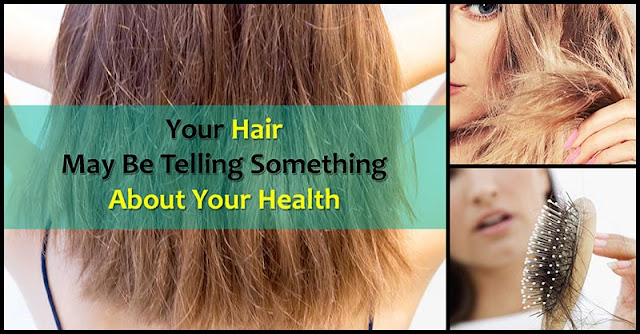Have you recently brushed your hair and suddenly found out that there were like hundreds of new strands of precious hair into the hairbrush? Or noticed some hairs are peppered with graying wisps? These situations can sometimes be an indication of a more worrisome cause.
Here Are The Reasons Why Your Hair Does Not Look As Good As It Used To
Not Enough Good Fats
Foods with polyunsaturated and monounsaturated fatty acids are vital for healthy hair and skin and also for overall longevity and vitality. These good dietary fats work to lock moisture into the skin and hair cells, thus keeping them youthful and supple. Moreover, it also helps your body absorb the key fat-soluble vitamins (A, D, E and K) which are important for hair health.
Some of the main sources of essential fats are seeds, oily fish, avocados, and olive oil.
A Lack of Other Vitamins and Minerals
If you lack many nutrients in your diet it can lead to an unhealthy mane. This is because hair is a non-essential tissue, so more important organs and tissues get their pick of the nutrients first before the leftovers get to the hair.
Once your vitamins and minerals are less than ideal levels, it may show up on your hair. Suboptimal levels of folic acid and vitamin B12 causes premature graying while low vitamin C can lead to dry and lackluster locks.
Iron Deficiency
Aside from causing fatigue and dizziness, iron deficiency is also closely linked to hair loss. Once this deficiency progresses into anemia, it sends the body into survival mode, channeling oxygen to support vital functions instead of using it to keep the hair on your head!
Lack of Protein
Because hair is made up of a protein called keratin, an adequate dietary protein is needed to encourage its growth.
You may lack high-quality protein if your hair is brittle and breaks easily. You may also have shorter layers on the top of your head which is caused by breaking of new hairs which aren’t strong enough to withstand chemical treatments and heat.
Dehydration
Excessive shedding or very weak and damaged hair can be a sign that you need to have more water into your daily regimen.
Coconut water and herbal teas all count towards your water intake. You should limit caffeine and alcohol intake as these can cause you to lose water.
Stress
Physiological stress, which is due to diet, medical or lifestyle changes, can cause you to lose your locks. This includes severe illness, changes in sleeping patterns, major surgery, and a strict low-calorie diet. Stress also uses up the body’s stores of vitamins and minerals.
Aging
Your our hair also loses some of its elasticity as you age and this makes your hair brittle while thinning hair or hair loss are the results of naturally falling levels of hormones. In addition, oil glands shrink over time and they don’t produce oil efficiently leading to dryer hair.
Poor Sleep
A good sleep allows the body to repair and regenerate its cells – including hair cells. Poor sleep or changing sleep patterns can lead to unhealthy hair.
Furthermore, people who are sleep deprived tend to be hungrier and crave junk foods like salty foods, candy, and carbs and this means that they certainly lack in the vitamins and minerals needed for healthy hair.









